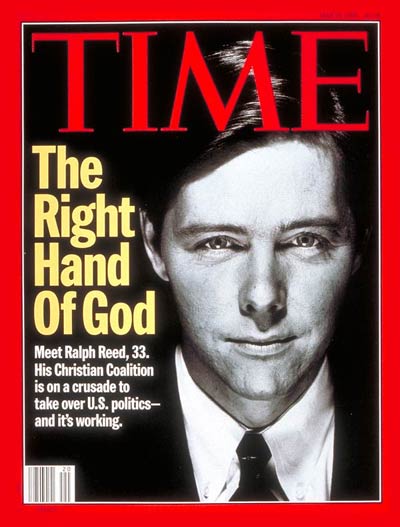Dick Pierard is now a professor emeritus. That means he’s old and he’s allowed to say what he thinks without worrying about whether he sounds grumpy.
And he is grumpy. He’s also dead right.
In the 2012 election, Pierard writes, “Self-proclaimed and media-designated evangelicals” did “everything they could to defeat President Obama.” And not only did they lose their electoral battle, he says, but “in the process they discredited the evangelical message and reduced it to a mere political gospel.”
In the aftermath of that debacle, Pierard recommends “Four Changes Evangelicals Must Make“:
1) The Southern Baptists need to get rid of the discredited Dr. Richard Land immediately, not wait for his announced retirement as President of the denomination’s Ethics and Religious Liberty Commission, which won’t be effective until October 2013. …
2) A change must take place in the Billy Graham organization. Franklin Graham, CEO of the Billy Graham Evangelistic Association, has done much to sully the reputation of the eminent 94-year-old evangelist in the twilight years of his rich and full life. …
3) Next, evangelicals have to rein in the conservative editorial policies of their flagship magazine, Christianity Today. It really ought to have some staffers who are free not to parrot the old shibboleths of evangelical political and social ethics …
4) Finally, evangelicals have to get off the abortion issue. The electoral defeat of several hard-liners should be a wake-up call that people are getting weary of the increasingly extreme positions that the more vocally Christian politicians are taking on the issue.
The key phrase in all of that is the observation that the staff and editors of Christianity Today are not “free not to parrot the old shibboleths of evangelical political and social ethics.”
And the key words in that sentence are “not free.” One of the reasons Pierard is a valuable commentator on American evangelicalism is that he had the good fortune to work at Indiana State rather than at an evangelical institution, so he has long been free to speak out with a candor that most evangelicals are not free to express.
But, alas, just because he’s free to speak such truths doesn’t mean his fellow evangelicals are free to listen.
* * * * * * * * *
The relationship between “mainstream” evangelicals and the religious right was also the subject of a recent post by Tim Dalyrmple.
Here is Dalrymple, writing on Thursday, Dec. 13, 2012:
Who’s Tony Perkins? … Who’s Bryan Fischer? … You have to be in pretty small sub-niches of evangelicalism to even know those names. And you *still* probably wouldn’t consider them standard-bearers of evangelicalism.
And here is Dalrymple, writing on Thursday, Dec. 7, 2012:
I asked Rob Schwarzwalder to lay out the argument on why so many evangelicals view some “emergency contraceptives” as abortifacient and why so many feel that the Affordable Care Act infringes upon their freedom of conscience.
That would be Rob Scharzwalder, “senior vice president,” of the Family Research Council.
So on one Thursday, Dalrymple defers to a vice president of the Family Research Council as an influential and authoritative spokesman for evangelicals.
And on the following Thursday, Dalrymple mocks the idea that the president of the Family Research Council is an influential or authoritative spokesman for evangelicals.
OK, then.
* * * * * * * * *
Christianity Today and my evangelical colleagues here at Patheos have an ambivalent relationship with the aggressively political operatives of the religious right.

Such mainstream evangelicals don’t want to get too cozy with such polarizing figures, yet they still consult them and trust them. CT will, like Dalrymple, cite the spinmeisters of the religious right as though they were objective experts who can be relied on to tell the truth about sexuality, science or current events. And by deferring to their “expert” authority, they provide the religious right with a platform that allows those hucksters to disseminate their ideology while also offering them the veneer of religious-seeming legitimacy they crave.
But even while helping to promote this right-wing political agenda disguised as a gospel, “mainstream” evangelicals insist on differentiating themselves from the religious right. They’re dimly aware that these political activists and operatives are running a political game of some kind, and that this should be kept distinct from the church.
So mainstream evangelicals are proud to call themselves social conservatives, but they reject being labeled as part of the religious right. All religious right activists may be social conservatives, they would say, but not all social conservatives are part of the religious right.
Their theory, then, is that mainstream evangelicals can enlist the support of the religious right as providers of expertise and analysis. They can be served by the religious right without having to be servants of the religious right.
That’s the theory.
But there’s an old saying about hanging around with grifters. If you don’t know who the mark is in their con, then the mark is probably you.












